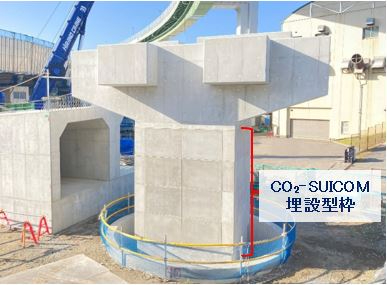J-STORIES ー 足腰が弱くなった高齢者は、転倒による大けがの不安にさらされている。人口の高齢化が進む中、救急搬送される深刻な転倒事故や死亡例は後を絶たず、東京消防庁によれば緊急搬送の8割以上を転倒事故が占めている。本人や家族などの苦痛だけでなく、介護や治療費などの負担も増える一方で、大腿骨骨折の場合だけでも、日本全体の年間負担額は約2兆円に及ぶ。高齢者の転倒対策は「長生きのリスク」を減らすうえで避けて通れない課題といえる。
しかし、転倒は突然に起こり、事前に予想することは容易ではない。そうであれば、転倒してもケガをしない安全な環境を実現できないかー。こうした逆転の発想から、転倒した時だけショックを和らげる新しい床材が開発され、住宅や医療施設などに利用が広がっている。
静岡県浜松市に本社がある Magic Shields が生み出した床材「ころやわ」は、杖や車いすなどを使う場合は普通のフローリングと同じように硬く、転倒した時だけ凹んで衝撃を吸収する機能を持つ。

独自機能の秘密は、大きな衝撃を受けた際にだけ柔らかくなる「可変剛性構造体」技術を活用していることにある。これにより、転倒時に受ける衝撃の強さは普通のフローリングの半分以下に低減したという。普通の床と同じような硬さがありながら、陶器の鉢植えを落としても割れることはない。
「歩行安全性」と「衝撃吸収性」を両立した床材は世界でも初めてとして、同社は2020年に特許を出願している。
高齢者の転倒事故がもたらす社会的な打撃は、日本だけでなく海外でも深刻だ。日本では高齢者が救急搬送されるケースの約8割が転倒によるもので、その事故の5割以上が住宅内で発生している。毎年約100万人が転倒骨折し、その数は2000年以降、倍増しているといわれている。
転倒時に起きやすい大腿骨骨折に限定しても、看護や介護負担、社会保障費を合わせると、日本全体のコストは年間約2兆円、アメリカでは7兆円にも上るといわれている。事故によって寝たきりになると認知機能にも影響を及ぼし、負担額はさらに跳ね上がる。
同社の社名である Magic Shields には、「魔法の盾」のように身近な人を危険から守りたいという下村明司代表取締役CEOの思いが込められている。
かつてエンジニアとしてレーシングバイクの開発にも携わっていた下村さんは、「大切な友人をバイクレースの事故で亡くし、それをきっかけに事故や暴力から人を守るための研究・開発に一段と力を注いできた」とJ-STOREISの取材に語った。下村さん自身の祖母も骨折で寝たきりになり、亡くなったという。
「そんな人を一人でも多く救いたい」。下村さんは自ら様々な場所や素材のうえで転倒し、それをもとに100種類以上の床材を試作。「ようやく、転んだときだけ凹む素材の開発に成功した」と自社のサイトで語っている。

「ころやわ」は現在、国内の約560施設を超える医療・福祉機関で利用されており、医療現場からは「ベッドから離れ日常生活の動作を広げたい患者さんに対しては、ころやわがあると安心」などの声が寄せられているという。

9月末には、静岡県磐田市のiプラザ(総合健康福祉会館)内の小児検診やダンスクラスのイベントが行われる「健康づくり室」などの子育て支援施設に、「ころやわ」を特別寄贈。今月中旬から検証を進めていくという。今後はフィットネスジムなどのスポーツ施設への導入も検討。高齢者向けだけにとどまらない幅広いニーズに対応していく方針だ。2023年8月中にはアメリカの大学病院への導入もスタートする。
同社は2023年8月1日から販売開始した「ころやわマット」にも改良を加えており、厚さも従来の半分の薄さである1.2㎝を実現した。このマットは「転倒したときの衝撃は、敷いていない時の約1/3に軽減できる」という。施設や医療機関での利用だけでなく、個人住宅の新築やリフォームの際に利用されるケースも増えている。


今後の事業展開をにらみ、同社は今年5月に第三者割当増資による2億3000万円の資金調達を実施。また、「ころやわ」の生産・物流拠点の拡充も進める一方、浜松市内の本社内(FUSE)に「ころやわ」を実体験できるブースがある他、生産工場内での体験も可能。
下村代表は「世界中の寝たきりや認知症になる人を減らすだけでなく、その方々に関わる家族の介護負担を減らすこと、介護や医療現場の人材不足にも寄与していきたい」と語り、「ころやわ」の販路拡大に力を入れる方針を示している。
記事:大平誉子 編集:北松克朗
トップ写真:Magic Shields 提供
この記事に関するお問い合わせは、jstories@pacificbridge.jp にお寄せください。
***
本記事の英語版はこちらからご覧になれます。










![[PODCAST] 日本新科技助攻不孕症治療(Part4)](https://storage.googleapis.com/jstories-cms.appspot.com/images/1768443226894unnamed-5_bigthumbnail.jpg)








![[PODCAST] 如何打造成功的新創企業社群(第2集)](https://storage.googleapis.com/jstories-cms.appspot.com/images/1748493203370business-man-holding-light-bulb-social-network-2024-10-31-22-37-36-utc_smallthumbnail.jpg)



I want to purchase it in California. Who is a distributor?